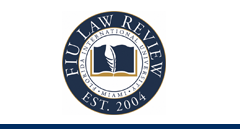Alternate Title
Weaponizing Rhetoric to Legitimate Regulatory Failures
Keywords
regulation, discourse analysis, pyramid schemes, multi-level marketing, FTC
Abstract
Pyramid schemes are illegal. According to the courts, they are fraudulent because they must eventually collapse, disappointing or exploiting the members at the bottom. This illegality, largely governed by the Federal Trade Commission (FTC) and the Securities and Exchange Commission (SEC), is narrowly construed to encompass only very specific instances of activity. In particular, we argue that the specificity of the law allows multi-level marketing companies (MLMs) to argue that they are ‘not a pyramid scheme’ both legally and societally in order to obfuscate exploitative conditions within the company. We take LuLaRoe as a case study of the ways in which this discourse is weaponized to obfuscate the harms of multi-level marketing, thereby exposing a substantial hole in regulatory frameworks. We conduct thematic text analysis on a popular internet discussion forum to study how ordinary people understand the law surrounding multi-level marketing companies. We share findings about how the specific construction of the law affects legal consciousness and cynicism about the protective capacities of consumer protection and regulatory law. We advance the theoretical terrain by moving from legal consciousness to legal cynicism to a new concept that we name “legal creativity.” We ultimately argue that a narrow legal interpretation of “pyramid schemes” serves to further exploit the very people that such illegality is meant to protect, but that ordinary people navigate regulatory holes and fundamentally imperfect knowledge of the law by employing legal creativity to generate solutions.
Recommended Citation
Kat Albrecht & Kaitlyn Filip, Weaponizing Rhetoric to Legitimate Regulatory Failures, 18 FIU L. Rev. 1 (2023), https://doi.org/10.25148/lawrev.18.1.5.





